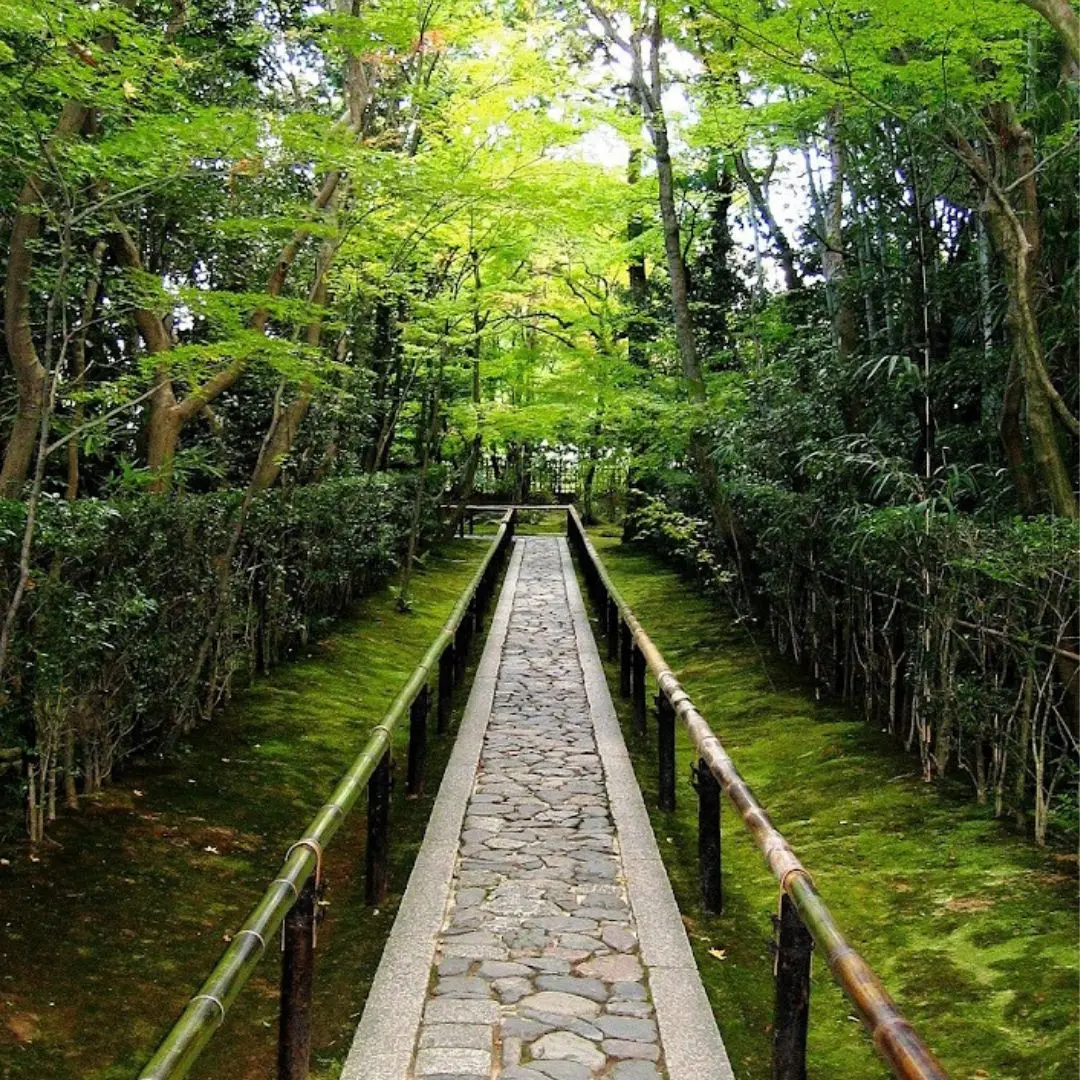
People in Japan have some of the highest life expectancies in the world, what’s their secret? We’ve got the tea, and we’re ready to spill!
Food is Medicine
There are five areas in the world known as “Blue Zones”. These Blue Zones stand out for being communities of exceptional longevity and quality of life. Interestingly enough, one of those five areas is Okinawa, Japan. Researchers study the Blue Zones to understand what sets these regions apart from the rest of the world in terms of diet and lifestyle. Some commonalities that emerged in recent studies include a high intake of plant-based foods, low sugar consumption, regular movement throughout the day, having a clear sense of purpose (also known as ikigai (生きがい) in Japanese), and minimizing stress.
The Okinawan diet and lifestyle originates from the Indigenous people of the Ryukyu Islands in Japan, particularly Okinawa. It gained attention because of the longevity and good health of the Okinawan people, who have some of the highest life expectancies in the world. Plant-rich diets like the Okinawan diet tend to be lower in calories and higher in nutrients, particularly the phytonutrients and antioxidants that may be lacking in standard Western diets. This results in a range of benefits including less inflammation and oxidative stress, for healthier aging and longevity.
There is a saying in Okinawa, Nuchi Gusui (ヌチ 具水), which translates to Food is Medicine. Burdock root, featured in our gut-support formula Never Been Bitter™, is the perfect example of using food as medicine. Known as gobo (ゴボウ) in Japanese, burdock has many culinary uses in salads, stir-fries, soups, pickled, or in a dish called Gobo Kinpira (ごぼう きんぴら). In addition burdock is used medicinally, for detoxification, digestion, liver, and skin health. Bitter melon, known as goya (ゴーヤ、) in Japanese, is another example of using food as medicine. It’s a cucumber-like vegetable commonly consumed in Okinawan cuisine in stir-fry, salads, tempura, and sometimes burgers, juice or tea. Medicinally, bitter melon is probably best known for its ability to balance and maintain healthy blood sugar levels.
By learning from the Okinawan diet, incorporating foods with health benefits into your diet, reducing stress and sugar consumption, and adding regular movement throughout your day, you can reap some of the longevity benefits of this Blue Zone, wherever you are.
Nature is Medicine
Japan has a traditional medicine modality called Kampo medicine. Originally descended from Traditional Chinese Medicine (TCM), Japanese Kampo has evolved and become its own unique system of medicine, incorporating herbs, foods, and practices from Japanese culture. One distinctive aspect of Kampo medicine is its integration into modern healthcare in Japan. Kampo herbal formulas are often prescribed alongside or instead of conventional Western medicine treatments for certain conditions. In Japan, Kampo medicine is regulated, and many Kampo formulas are even covered by health insurance. Traditionally, Kampo diagnosis was practiced by specialized practitioners, and involved a complex and sophisticated set of non-invasive diagnostic techniques. Nowadays, since Kampo is often prescribed by physicians, it is prescribed based more on major symptomatic complaints rather than traditional diagnostics. The secret though, is that natural medicines in Japan are utilized and prescribed on equal footing with pharmaceuticals, not as "alternative" medicines.
Japanese culture truly recognizes nature as medicine. Another example of this is the Japanese practice of Shinrin-yoku (森林ーよく), or forest bathing. This is a simple method where you relax in a natural setting and allow nature to help reduce your stress and boost your health and wellbeing in a natural way. While forest bathing, you can quietly observe nature, breathe deeply, and take in the forest environment through your senses. Research has shown that nature-based mindfulness practices like forest bathing can lead to meaningful health benefits that can improve your quality of life and longevity.
Tea is Medicine
Japan is renowned for its tea culture, with several types of tea unique to the country. Some of the most notable Japanese teas include matcha, sencha, gyokuro, hojicha, genmaicha, and kukicha. These are just a few examples of the diverse range of teas that originate from Japan. Tea is such an important part of Japanese culture that a series of rituals or ceremonies around tea culture have been performed for centuries. Japanese tea ceremonies, known as "chanoyu" or "chado" (茶の湯) or the way of tea, are traditional rituals centered around the specialized preparation, presentation, serving, and consumption of matcha, a powdered green tea. Japanese tea ceremonies emphasize harmony, respect, purity, and tranquility, reflecting traditional Japanese values and aesthetics. These ceremonies have deep cultural significance in Japan and are often seen as a form of art, meditation, and social interaction, with refined elements of philosophy, etiquette, and ritual aesthetics.
In addition to the mental health benefits of mindful tea rituals, green tea, especially matcha, is rich in antioxidants and polyphenols, which have been studied for their antioxidant and cardiovascular health benefits, particularly catechins such as epigallocatechin gallate (EGCG). Due to its unique shade-grown cultivation, Japanese matcha tea is an excellent source of L-theanine, an amino acid helpful for calm and focus. Green tea also contains compounds that may promote weight loss, improve brain function, and support overall health.
Green tea, as found in our energizing herbal formula, Slay All Day™, has myriad health benefits that can support longevity and quality of life, and act as a mindfulness ritual. While the formal Japanese tea ceremony may require years of practice to master, the principles of mindfulness and appreciation for simple moments can be incorporated into daily life for stress reduction and an oasis of zen.
Japanese Wellness Secrets Wherever You Are
Take it from the Japanese, living well doesn’t have to be complicated. By reducing stress, adopting elements of a plant-based diet, drinking more green tea, and embracing the healing benefits of nature, you, too, can increase your quality of life and, hopefully, your longevity. Fortunately, you don’t have to move halfway around the globe to incorporate these elements into your lifestyle and see the benefits. Even small lifestyle changes like a mindfulness practice and gradual shifts to include more plants in your diet can provide meaningful benefits over time. The key is to start today.


